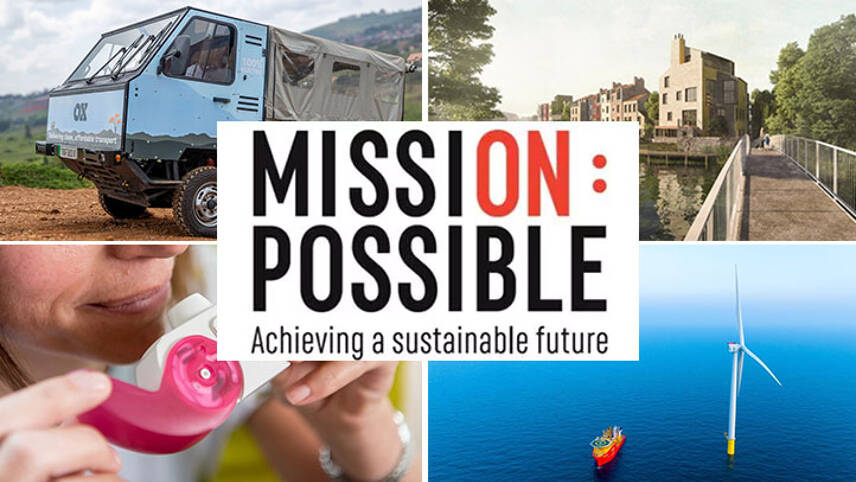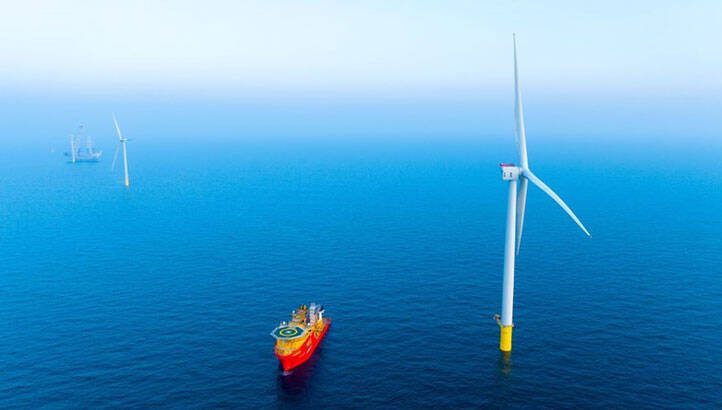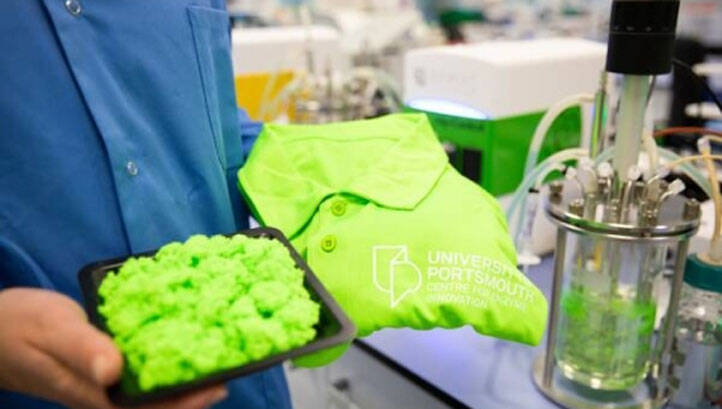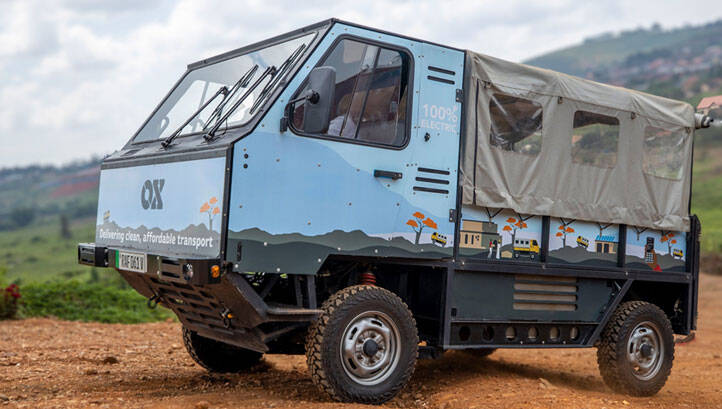This premium content is exclusive to edie Members.
To find out more about edie Membership, please click below.
If you are an existing member, login here

Published every week, this series charts how businesses and sustainability professionals are working to achieve their ‘Mission Possible’ across the campaign’s five key pillars – energy, resources, infrastructure, mobility and sustainability leadership.
Across the UK and across the world, leading businesses, cities, states and regions are turning environmental ambitions into action. Here, we round up five positive sustainability stories from this week.
ENERGY: Britain launches its largest-ever tender round for an offshore wind farm
Image: SSE
The UK’s offshore wind sector has faced turbulence over the past year or so, with rising supply chain costs forcing developers to pause, axe or even sell major projects. Globally, some $350bn of projects in the pre-final investment decision (FID) phase are estimated to be at risk.
In brighter news, British energy regulator Ofgem has this week invited investors to bid for an estimated £1bn worth of offshore assets at Dogger Bank, the world’s largest offshore wind farm located off the coast of Yorkshire. The tender relates to 1.2GW of transmission assets at Dogger Bank B. Investors will receive guaranteed returns for 25 years if their bids are successful.
Construction on SSE-led Dogger Bank A began in spring 2022 and it delivered first power late last year. Full power is expected in early 2025. The ‘B’ phase of the project is set to begin construction in the next 18 months despite delays.
The tender for Dogger Bank B is Ofgem’s largest to date, but could soon be eclipsed. Ofgem is expected to launch four more tenders for £7bn worth of assets within a year, the regulator announced this week.
RESOURCES: New ‘mission’ financed to scale plastic-recycling enzyme technologies
Image: University of Portsmouth
Readers will most likely have seen coverage of a major new Centre for Climate Integrity report this week, which alleges that plastic companies engaged in similar deception around the environmental impact of their products as fossil fuel majors. The report pulls apart claims around the effectiveness of mechanical plastics recycling.
Several innovative alternatives to traditional recycling methods involve using enzymes to digest plastics. These kinds of solutions spurred much media buzz in recent years amid tech breakthroughs in the space.
This week, the University of Portsmouth secured UK Government funding to launch a new ‘Mission Hub’ at its centre for enzyme innovation (CEI), dedicated to plastic pollution management. It will benefit from £11.2m from the UKRI Technology Missions Fund.
The CEI has operated since 2019 and has played a key role in taking enzymes from plastic management from lab research to real-world trials. It hopes to scale its facilities and researcher base to reach commercialization.
Centre director Professor Andy Pickford said: “Our mission is aligned with the needs of industry, so as to bring about comprehensive and enduring change, and support the transition towards a circular plastics economy in the UK, creating job opportunities and wealth for the country.”
MOBILITY: Funding boost secured for electric truck deployment in Africa
Image: OX Delivers
Africa’s transport emissions increased by 27% in the 2010s and continue to grow due to factors such as poor fuel quality and a lack of electric options, compounded by the increased use of transport for work and leisure amid economic growth.
One company working to tackle this challenge is OX Delivers, which has developed pure-electric trucks and charging infrastructure appropriate for use in African nations, including on off-road routes. The e-mobility startup this week secured a £1.2m grant from Britain’s Energy Catalyst fund to develop energy and charging infrastructure for these trucks in Rwanda.
OX Delivers provides access to its two-dozen trucks as a service. Businesses do not need to own, lease or rent the vehicles to deliver their goods to market. Its vehicles are able to carry up to two tonnes of goods – roughly 20 times the capacity of a cargo bicycle.
THE BUILT ENVIRONMENT: Green light for UK’s largest timber-structure neighbourhood
Image: Human Nature and Periscope / Ash Sakula Architects
Developers seeking to construct the UK’s largest timber-structure housing project on a brownfield site in Lewes, Sussex, have this week been granted planning permission for what they describe as the nation’s most sustainable neighbourhood.
The Phoenix Project will comprise 685 energy-efficient homes incorporating low-carbon construction materials including timber frames and hemp. Used materials from the site’s industrial past including bricks and steel will also be reused in the development.
As well as the houses, the site will feature a river walkway, public squares and gardens and a co-mobility hub featuring electric bike hire and sharing services. It will also be served by a dedicated shuttle bus.
Local developers Human Nature, led by former Greenpeace directors Michael Mnolson and Jonathan Smales, are leading the project. Arup are Periscope are supporting.
“The current mainstream model of development is catastrophic, baking in deeply unsustainable fabric, infrastructure and transport, fuelling the climate and nature crises; it also creates social divisions and exacerbates loneliness,” said Smales.
“We aim to show that living sustainably can be a joy, not an exercise in self-denial, made far easier by the design of neighbourhoods.”
SUSTAINABILITY LEADERSHIP: Chiesi touts carbon-neutral inhalers to spur healthcare decarbonisation
Image: Cambridge Consultants
The Sustainable Markets Initiative estimates that the pharmaceutical industry accounts for some 5% of annual global greenhouse gas emissions. The majority are generated in the supply chain but the biggest source of emissions from operations and downstream sources are gases used for things like anesthetics and inhalers.
GSK, for example, attributes half of its emissions footprint to inhalers.
It is good news, then, that Italian multinational Chiesi Group has developed a carbon-neutral portfolio of inhalers and other respiratory medicines. The business has purchased and retired verified carbon removal credits linked to reforestation initiatives in India to offset its carbon footprint. This has led to the portfolio’s certification under the international PAS2060 carbon neutrality scheme.
The Group acknowledges that offsetting should not be used as a replacement for carbon reductions. It is aiming to reduce its emissions from sold product use by 90% by 2035, against a 2035 baseline. Key focus areas for achieving this include sourcing innovative propellants for inhalers and improving their efficiency.
Chiesi UK and Ireland’s general manager Ralph Blom said: “Through the development of our low global warming potential propellant and our carbon removal initiative, we are well on our way to making our carbon footprint as small as it can be. We will continue our sustainability journey, regularly assessing our progress and championing a more inclusive and sustainable economy.”







Please login or Register to leave a comment.